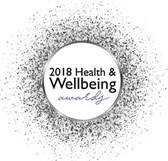|
Mostly attendees were in their 70s and 80s and they enthusiastically enjoyed exploring some yoga postures, breathing, relaxing and ultimately found it revitalising with smiles all around by the end of the short, 25 minute practice. (Or was that because lunch was next).
They sought out the handout to support them with a short, daily routine of yoga to help them rekindle this feeling in themselves. Movement, breathing, focus, coordination, the fun social interaction of a group activity - all these aspects are helpful in preventing the development of dementia and keeping active in any way is great for everyone, including elderly folk. Yoga can be gentle enough to include everyone, doesn't need fancy leggings or mats, and certainly doesn't need to feel esoteric or mystical. Let's move, breath, relax into ourselves and enjoy life a little more :-)
0 Comments
The gentle yoga class was quieter but always nice to be able to offer a more adapted and therapeutic approach to yoga practice for those who want to start there. Small groups are ideal for this approach to yoga so that we can ensure that it is adapted and suitable for you.
We are pleased to say we raised £163.28 for Off the Record, the local Bristol charity providing free mental health support for young people. Thanks for your donations and the donation jar is there this week for anyone who wants to drop-off a donation who didn't get a chance on Saturday. It was a lovely chance to collaborate with many of the other independent yoga studios in Bristol too. Our lovely neighbours, Yogawest, who offer the more alignment based Iyengar yoga joined in, Yogafurie who offer hot yoga in Ashley Down, Yogasara and Bristol City Yoga in Stokes Croft, and Flow yoga in Windmill Hill. It is so nice to collaborate with the other 6 studios, work together to share yoga to the broader Bristol community, and raise money for charity. It is great to demonstrate that in this day and age, not everything is competitive or trying to get ahead. We all love yoga and see if as a way to share our love of it with as many people as possible, bring people together and become more integrated with our communities as a collective. Looking forward to the 2018 yoga trail and working with the other yoga studios again to bring that to everyone. Thanks again for coming and we welcome you back to the YogaSpace studio in Bishopston soon! 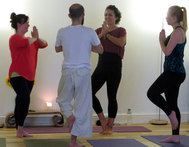 Yoga classes have begun to polarise. From the fast and sweaty vinyasa flow and Ashtanga yoga, to the restorative and Yin yoga classes that have emerged. They seem to be on two ends of a wide spectrum of modern postural yoga classes. People turn to yoga for a range of different reasons. Perhaps you've come to it to feel stronger or more flexible, or you enjoy the heat and sweat that it can build. Perhaps you enjoy the stillness and calm that it offers, or the good nights sleep it gains you. You may have an injury or pain that you are looking to sort out, or perhaps you just want that elusive feeling of wellbeing. They are all good reasons to practice yoga, and finding the right approach for your practice is more than just the immediate feeling it leaves you with. Your practice should leave you feeling better than when you started, and progressively better in the long term. You may be surprised that I even need to state this. But I regularly speak to practitioners and even yoga teachers who switch between two extreme styles of yoga practice in an effort to keep themselves balanced. Taking a strong vinyasa class supplemented with a Yin or restorative class seems a simple contradiction in approach. It's nice to change pace and explore from time-to-time. But to pursue the challenge and energy which then leaves you needing restoration to enable you to continue this cycle seems worth reflecting on. It is a cycle we often undertake in life which we then replicate on our yoga mats. Yoga practice is for the long term. It should support your primary aims as well as deepening your sense of internal balance with consistent practice. The balance of yoga doesn't begin on the mat, it beings before you get there, with your intention and choice of how to practice. Back to YogaSpace Homepage 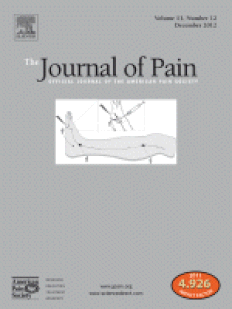 A common complaint - stiff shoulders, limited mobility in the neck and discomfort in the upper back, shoulder, neck area. Accumulated tension, often caused by working at a desk, poor posture, cycling etc. all contribute to tension and stiffness related pain. There are some great yoga postures that gently get to the root of the problem and release blockages and free up the area. And without them, or regular massage, it doesn't resolve by itself. We don't really do any natural movements that will release that part of the body, unless we make the extra effort. So it just gets worse over time. So many of us hunch our shoulders and have a rounded upper back as a result. It is good to see yoga being clinically researched to demonstrate how it can help. I see benefits in my students and anecdotally hear how it helps them regularly. I currently have two yoga therapy students who are greatly benefitting from the gentle releasing of the shoulders and neck. You need to work carefully and gradually, but gentle stretching and movements will help. See more on the research here: Journal of Pain Research paper http://www.jpain.org/article/S1526-5900(12)00779-1/abstract Yoga Journal Article http://blogs.yogajournal.com/yogabuzz/2012/12/yoga-for-neck-pain.html Get in touch to find out more about how yoga can help you if you suffer from neck pain. [email protected] Back to homepage >  Affecting up to a third of breast cancer survivors, fatigue can't be underestimated for its impact on a sufferers daily life. Fatigue can be debilitating and is often not taken seriously enough. A study published recently has demonstrated the benefits of practicing yoga to help overcome persistent fatigue in breast cancer survivors. 12 weeks of yoga practice in a randomised, controlled study not only found significant reduction in fatigue, but also increased vigor. Details on the study can be found here (1). Also see the British Wheel of Yoga article here. This doesn't mean heading to your nearest group yoga class however. When suffering from fatigue it is important not to be exhausted by the yoga. A group yoga class would likely be too much to begin with. Short, gentle, regular yoga practices would be more beneficial, gradually progressing as improvements are felt. Personalised home yoga practice, or therapeutically applied yoga, is most effective when embarking on yoga for those suffering from fatigue. Get in touch for more info on getting started with your own home practice designed to meet your health and energy needs. (1) Bower, J. E., Garet, D., Sternlieb, B., Ganz, P. A., Irwin, M. R., Olmstead, R. and Greendale, G. (2012), Yoga for persistent fatigue in breast cancer survivors. Cancer, 118: 3766–3775. doi: 10.1002/cncr.26702 Return to YogaSpace homepage There was some positive media coverage last weekend about how Yoga was used to help David and Samantha Cameron's late son Ivan. Using Yoga Therapy tailored to his needs, Ivan, who suffered from Cerebral Palsy and Epilepsy took part in regular yoga sessions at the Special Yoga Centre in London.
Yoga for children can be helpful for a wide range of needs, ranging from the therapeutic for serious health needs, to simply being fun and active to help get kids engaged and get them moving. Children can gain confidence, strength, coordination, balance, focus and concentration through practicing yoga. I recently took my Yoga for Children teaching module which trains you for running yoga classes and activities with children. The classes are very different to adult classes! Much more playful, fun, noisy, energetic, and hopefully leading them to a calmer and more focused space by the end of the session. I'm running my first Children's Yoga Party soon which promises to be loads of fun! There are many inspiring stories of how practicing yoga has helped to support people with serious health problems back to full health. Here is a wonderful account of an NBA basketball player struck down with a serious kidney condition which resulted in a kidney transplant, and how his dedicated practice of yoga helped save his life and his career as a professional athlete...
Read more in this inspiring post by Trevor Kearney... Back to homepage > I'm biased I know, but I think most people could benefit from yoga practice! I work with a lot of mums, especially in my private yoga therapy work, where women come to me without much time or space for themselves, and have a range of physical, mental and emotional issues such as stiffness, aches on one side from carrying children on one hip, stress through the shoulders, poor sleep, over-eating, worrying, and an over-active mind that refuses to slow down at the end of the day.
These are common complaints but particularly so for mums whose days aren't their own anymore and who struggle to find time to take care of themselves. Yoga doesn't have to be a weekly class, although this is often the best way to ensure you actually make it on to your mat at least once a week and spend a good hour doing a full yoga practice. Yoga can also be fitted in to your busy schedule, requiring perhaps as little as 15-20 minutes a day to help keep you physically, mentally and emotionally supported. Think of how you might tend to a garden - keeping it tended to little and often is as good, if not better, than a big session every now and again to keep it all under control. A practice that is customised for you is ideal, incorporating some physical postures to help energise the body, stretch and release tension, strengthen the posture to help alleviate aches and pains. Plus perhaps some breathing work to settle the mind and restore balance, and perhaps even meditation if interested (which has well known stress-relieving and healthful attributes). All of these practices will help you create and maintain some well-earned space for yourself, and can be fitted in to those small pockets of time once the kids have gone to bed, when they are napping, when they are watching tv, or before you go to bed. In my group classes I always encourage students to try some yoga practice at home if they are interested. Part-way through the term, I'll often offer them a small handout with a short practice to try for themselves at home. Sometimes students keep it up and come back weeks or months later reporting how much more benefit they get from yoga once they have started regular practice at home. Of course a daily healthful practice doesn't just have to be yoga, there are other things that you might find you enjoy that keep you motivated to continue with it. But what better way to nurture your health and wellbeing than by giving yourself the gift of a short yoga practice a few times a week to help maintain balance and health in your life. This question is one that I get asked regularly. The responses are different for different people and of course, there isn't a right or wrong answer, yoga is different things to different people...
Yoga for fitness? People take to physical activity for the challenges that are supposed to help keep us supple and healthy. Yoga can provide a range of challenges, some intense and others more relaxing depending on the yoga practice. The movements can help you feel better in yourself (as long as you work within your own limits and progress sensibly), can strengthen you and keep you suitably supple. However here is definitely more to it than a regular fitness regime, otherwise why not go to the gym? Yoga for stiffness? Yoga is notorious for its bendiness and many people believe they need to be bendy to do yoga. Not so! The bendy poses are not in the majority, and many postures are completely accesible for stiff people too and over time the stiffness will ease up so yes, great to help improve stiffness. Yoga for posture improvement? Yoga is perfect for strengthening and improving posture. After all, the physical postures or asana were originally designed to keep the body strong and stable to enable hours of meditation by the yogi. So the benefits of practising yoga asana can support our modern day posture needs too. Yoga for relaxation? Stretching and limbering up the body can help encourage the body to let go of tension. Along side this, focusing our minds on body and breath work can help relax our minds from the tensions of daily grind. Yoga can help us ease up on tension and encourage the body, and the breath, and even the mind, to relax. Yoga for stress-relief? It is well known that the work in yoga leaves people feeling calm and with a pervasive sense of well-being. Some people report this also from running, swimming, eating chocolate... Yoga definitely helps both release stress, and also to have the ability to recognise it earlier. By taking the time to listen to our bodies and minds, and recognising the signs of stress early, and by understanding what the causes are, we can begin a deeper pattern of change to prevent stress-related problems. Yoga for healing? Yoga is known for its therapeutic help, and I work with a lot of private yoga students who will testify to this. For a variety of reasons, they find a regular yoga practice helps improve their bodies and also helps them with much more besides. Movement and good breathing can help heal the body and mind and encourage repair, renewal and strength. Yoga can be as gentle or as strong as is needed to ensure it is beneficial to whoever is practicing it. I work with people recovering from sometimes serious illness who physically are very limited. But there is always something you can do that will gradually lead to greater ability and hopefully progress you back to health either physically, mentally or more often than not, both! Yoga for spirituality? Yoga has the ability to calm down and settle an overactive body and mind. We can stop worrying, still the incessant chit chat of the mind and move towards creating a refreshing calm, a reprieve to help us handle every day life. This in turn can lend itself to meditation and contemplation of what spirituality might mean to us. By accessing a still and settled mind we can experience the world from a different perspective and perhaps notice things we hadn't noticed before, bringing us closer to who we really are. Yoga to support personal change The philosophy and psychology of yoga has many teachings on how we perpetuate our habits, good and bad. It teaches how we can reflect on them, what their triggers and patterns are, how to know ourselves well enough that we can ultimately move towards changing them and ourselves. Yoga practice is a starting point for personal change and development. As I told a private student today, one of the joys of yoga is that it is sooo efficient. It can do all this and more in a relatively short practice, the more you practice, more the of these benefits you can get. So why do we practice yoga? Is it so we can become a little bendier than we were before? Or perhaps there is more purpose than this? Back to homepage Saturday was a lovely afternoon where a group of us explored how yoga can help our posture in every day life. The 3 hour workshop explored our own individual postures, how life has imprinted on us over the years perhaps with our shoulders hunched from rounding over a computer screen, or our bodies become more uneven from left to right as we carry children or heavy bags over the years always preferring one side over the other.
Some postures of course we are born with, but for many of us it reflects how we carry ourselves and our individual strengths and weaknesses. Have you ever noticed how body builder may have rounded shoulders as the over-strengthened abdominal muscles don't have the appropriate back strength to maintain a well balanced posture? Interesting imprints of life! Yoga was traditionally applied to help strengthen the body so that the student could then go on to sit for long period in meditation without the body aching or distracting and with the mind calm and ready to meditate. So many yoga asana are directly aimed at improving our own posture, whether our goal is to meditate or not. Yoga can help us notice our posture, developing awareness in our lives of our habits and patterns, and exercises that can help compensate and strengthen or stretch us appropriately to rebalance our bodies. Just 15 minutes a day can help have a significant impact on our own posture and help us all stand tall. Last Sunday was a great opportunity to take a few hours to explore ways to improve how we handle stress in our lives. Stressful life is a given for most of us. We're busy, our lives are full, our jobs, kids, families, homes, obligations keep us pretty much flat out.
I'm used to welcoming people into my weekly yoga classes who are exhausted and stressed out. We often keep going until we are exhausted, and only really stop when things get to a point where we actually can't go on, when our bodies tell us in no uncertain terms that we must stop. We all do it, but of course it takes it's toll. Research suggests that stress is one of the biggest contributors to ill health and an early demise from various related health conditions such as heart disease. So Sunday's yoga workshop on stress relief was a chance to explore some simple, easy to practrice yoga methods that can help us manage our lifestyles and keep stress levels lower. The aim was to teach them in a way that means they can be practiced daily or regularly at home. Short, regular practice of these methods can make a dramatic difference to our ability to deal with stress and having a few techniques that you can use at any time, even at work or when in the car stuck in traffic, can help reduce our stress levels. Simple breath techniques, body work or meditation for a few minutes every day can make a huge difference. The yoga workshop on stress relief at Bristol Yoga Space explored a few easy methods and gave handouts on how to practice them at home. Another workshop on stress relief will be held in early Autumn too. Keep an eye on the website for dates. France is embracing yoga and around 1.5 million have taken up the practice for therapeutic reasons according to Le Monde last week.
In a front page news article, "Le yoga intellectualise un peu la pratique de la gym". In a mainstream report, it goes on to say that in societies more and more dominated by stress, yoga represents an accessible way to better cope with modern life. Starting with the body, yoga works to relax and release daily tensions, and engages mental activity in a way gym work may not explictly do. Done well it fully engages the body and the mind, and the results leave the participant refreshed and more relaxed, re-energising rather than tiring the body, and this helps to support the body's systems to help maintain health. "More and more doctors are recommending that yoga is practiced 3 hours per week." And 3 hours per week suggests we are doing this at home too, supplementing the group yoga classes. Sounds good to me! If you are one of those lucky people who can sleep anywhere, then you are the envy of many. I'm usually okay except when there seems to be lots going on, or when the circumstances are less than ideal. So here is the challenge which I found myself in recently...
Staying at a friends rural flat the other night, the local farmer who was also the landlord, was having a get together downstairs with other people from the valley. They were singing folk songs, there was a guitar, and they were directly beneath the bedroom where I was sleeping. Around midnight, they remembered the magnificent TUBA, and starting to provide a 'pump, pump, pump, pa-pa-pa-pump' richness to the songs. Sleep was needless to say not happening easily! So three steps were employed to help... Step 1 - ear plugs. There was no blocking out the catchy tunes, but muffling would definitely help, and ear plugs help to tune you in to the sound of your own breathing rather than the sounds of the nearby party. Step 2 - yoga breathing techniques. Gentle ujayii 'whispering breath' in a slow rhythmic pace to help relax the body, focus the mind in on more calming thoughts (beyond the fantasies of the party-goers remembering slumbering neighbours and quietly all ending the music) and gentle breath-pauses to comfortably encourage a more sleep inducing breath. Step 3 - counting the breath. Like counting sheep (and counting sheep can help too) counting the number of breaths taken and trying to get up to 30-or so, and then counting back down again. Keeping count is harder than you might think but again it focuses your thoughts rather than getting annoyed or caught up in other stories. These simple techniques left me fast asleep shortly afterwards, leaving the magical tuba to fill the valley with comical rhythms that I'm sure kept other would-be-sleeping neighbours awake far longer than they would have liked. Yoga has much to offer those who suffer from sleeping difficulties, with either short-term problems, or longer term difficulties where a more structured programme of yoga can be used. Typically you would try including very gentle, calming postures before bed, or specially selected postures earlier in the day that help reduce disturbances in the body or energy levels that can make sleep difficult. A personal yoga programme (yoga therapy) can be hugely helpful to address your sleep issues and help sleep come more easily. A short daily yoga practice can greatly ease the ability to fall asleep and stay asleep the whole night. Most of us need more and better quality sleep, and this is an often overlooked aspect of our health. This morning on Radio 4 they mentioned the Sleep Scotland initiative which is being promoted to help address this problem and highlight the issue, especially as a serious issue in children. Another thing to bear in mind is that not everyone needs the same amount of sleep, especially as adults, and many need less than perhaps they think they do. But if you find yourself tired in the daytime, then too little or too much sleep might be an issue for you depending on your constitution. There are many things that are available to help, including yoga, but one I don't recommend is of course the tuba, unless it is your favourite hobby in which case I'm willing to stand corrected! |
More blog articles >Categories
All
Archives
July 2024
|
|
Bristol YogaSpace Ltd
Princes Place, Bishopston Just off Gloucester Road Bristol BS7 8NP |
|

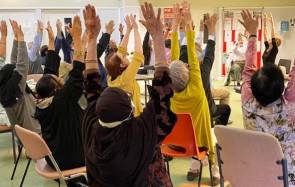
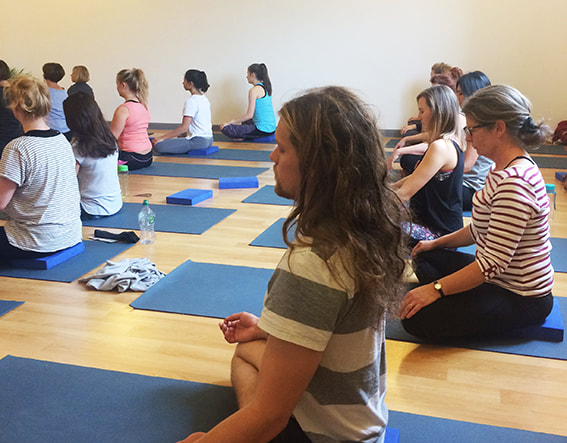


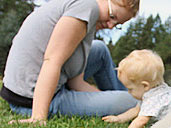

 RSS Feed
RSS Feed

